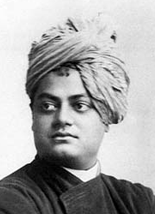Dec 25, 2025
Dec 25, 2025
by Sakshi
Kumbh Carnival
Remember the epic fight between the gods and the demons over the Amrita Kumbha (the legendary pot containing Amrit – the nectar of immortality). As per the Puranic story, Lord Vishnu vanquished the demons and captured the Kumbha (pot) of elixir. As he was chased by the demons to snatch the pot, drops of nectar spilled over at Prayag, Haridwar, Ujjain and Nashik. When the faithful take the holy dip every 12 years the river waters at these blessed spots morph into purifying nectar; and that cleanses the sins and souls of the bathers.

It is on record that it was only during the 8th century that the fair gained traction. It is said that Adi Shankara formally instituted a system of Kumbh Melas which also served the purpose of structured gatherings where scholars and seers met and mingled with the masses and discussed and debated streams of Hindu thought and philosophy every 12 years. It was one of those devices that helped Hindu faith survive over centuries the onslaughts of invaders.
We are reputed to be a people who are terribly bad at organizing. But the fact that millions did bathe on the occasion of Makar Sankranti (January 14) without any mishap proves – doesn’t it? – that there’s indeed a divine hand guiding our survival over centuries? An event of this magnitude would indeed be a logistical nightmare anywhere else.
The sight of millions of devoted bathers braving the bitter cold of the season establishes the fact that a silken thread of faith has kept India bonded. The idea of India is not a British import as our pseudo-secularists tell us. It is inherent in the faith.
The Great Addiction
In my life time I’ve been a witness to – and allow me to also confess prey to – many an addiction – personal and social. First it was the weed. Seeing everyone smoke, I tried my hand and then got hooked. At least twenty cigarettes a day and later in life leisurely pipe-smoking. A mug of beer to feel relaxed led to a daily drink. And now another, called smartphone addiction looks temptingly close.
Do you have a smartphone? If yes, do you admit you check it compulsively? And the more you do the greater the urge to look at it: checking your email, a favorite blogger, your day’s calendar, and, of course, Twitter. And when and where? In the orthodontist's office, getting ready for breakfast, sipping your coffee, in the midst of a serious discussion!
And the contagion is relentlessly on the spread. According to a survey last year by the Pew Research Center, 46% of all American adults now own a smartphone – up a whopping 25% from 2011. What about us? My guess is about ten per cent i.e., a good 10 crore have smartphones. And irresistibly they check within minutes of getting up in the morning, last thing before going to sleep, most of the time if on a holiday. Time of the day and mood of the moment don’t matter. When at work or while driving. I’ve seen early morning joggers looking at the dial every tenth step.
And since we in India try to repeat in the afternoon what we hear the Americans have done in the morning, let us be more vigilant if you want to avoid the contagion.
Shivers at the Shivir
How endearingly candid was Sonia Gandhi telling her Party workers that the state of affairs in the country is no longer what it was. If you throw lavish parties and uninhibitedly indulge in ostentatious display of wealth; won’t people around you ask where on earth has all this wealth come from? She wisely forgot to add that they already know the source of what in, our society, is euphemistically called black money. It is all the wealth stashed away by evasion of taxes and duties.
If she had real gumption she might as well have told them about that wise aphorism attributed to Abraham Lincoln: “It is true that you may fool all of the people some of the time; you can even fool some of the people all of the time; but you can’t fool all of the people all of the time.”
Indeed the man in the street – nowadays known by the fashionable sobriquet common man – has known it for quite a while. Now he seems determined to use the right that the founding fathers of the Constitution wisely endowed him with – the right to vote to choose the rulers of the day. Things can no longer continue in the way they used to. Bob Marley’s lyric and its desi equivalents are rending the air:
Get up, stand up, stand up for your right
Get up, stand up, don't give up the fight
Body or Body Politic
 In 1896, in a letter from London to his favorite disciple, Alasinga Perumal, Vivekananda wrote the famous lines:
In 1896, in a letter from London to his favorite disciple, Alasinga Perumal, Vivekananda wrote the famous lines:
“My child,
what I want is muscles of iron and nerves of steel,
inside which dwells a mind of the same material
as that of which the thunderbolt is made”.
How many responded to the stirring message of Swamiji?
Our great leader Mulayam Singh Yadav, himself a wrestler of no mean standing, has a worthy younger son, Prateek, who has turned down the persistent family requests to contest the Azamgarh Lok Sabha seat. Instead, he wants to devote his time to develop his body by spending hours in gym to indulge his passion of body-building. He has no interest in body politic that his elder brother, Akhilesh Yadav, now the Chief Minister of UP has.
Prateek went to Leeds to study – what these days is fashionably called management. Having spent almost half a century in the arid world of industry, I still don’t know how on earth can management be taught! As far as I know it is only practiced. The very first book in this fast-proliferating area was written by Peter Drucker – that was some sixty years ago – and he called it Practice of Management.
As a wise lad, Prateek must also have realized that it is better to devote your time and energy to something concrete like developing your body rather than wasting your time and effort in the clueless domain called body politic. And if you join politics – everyone does without admitting it – to make money, the real avenue is real estate that Prteek is deeply interested in. If that’s your aim, you better join him than the Samajvadi Party.
As it is, everyone else in the family is already in the over-crowded profession of politics. Nice indeed to have one sane member in the family.
It’s Always Crises
Was the Bard thinking of our would-be good neighbor Pakistan, when he made Claudius say is Hamlet
When sorrows come,
they come not single spies
But in battalions.
Invariably always in a state of crisis, Pakistan plunged into chaos when its Supreme Court ordered the arrest of Prime Minister Raja Parvez Ashraf. And this happened literally within hours of Pakistani-Canadian cleric-politician Tahir-ul Qadri calling for immediate dissolution of Parliament and assemblies.
Don’t get over-worried. Pakistan has learnt the art and craft of living with crises – one immediately after another.
L’affaire Petraeus
Sooner or later there would be a movie: L’affaire Petraeus. The theme would be all too familiar. A powerful man fools around with a pretty woman. Inevitably, the affair is discovered, which always happens. A contrite resignation. A tearful divorce follows. Haven’t you seen Happily Divorced, the famous American sitcom? Remember the divorce settlements of Arnold Schwarzenegger and Tiger Woods running into hundreds of millions.
You may recall Henry Kissinger admission that power is a real aphrodisiac. And mix sex with power you can explode a career with more precision than a military drone.
 May I introduce you to Dr. Helen Fisher, a biological anthropologist at Rutgers University? She studies the science of how humans love and why they cheat. In her brain-scan research, she found that romantic love sparked activity in the same part of the brain linked to addiction, about which I’ve talked about above in this edition of the Diary. “When you are romantically in love with someone you crave them, you are highly motivated to win them, you obsessively think about them – the same traits of an addiction. People distort reality and they are willing to do dangerous things.” Now that’s precisely the retired General was up to with his anti-terrorism advisor 20 years his junior. But think of it how does age matter in matters of love.
May I introduce you to Dr. Helen Fisher, a biological anthropologist at Rutgers University? She studies the science of how humans love and why they cheat. In her brain-scan research, she found that romantic love sparked activity in the same part of the brain linked to addiction, about which I’ve talked about above in this edition of the Diary. “When you are romantically in love with someone you crave them, you are highly motivated to win them, you obsessively think about them – the same traits of an addiction. People distort reality and they are willing to do dangerous things.” Now that’s precisely the retired General was up to with his anti-terrorism advisor 20 years his junior. But think of it how does age matter in matters of love.
A recent Dutch study of executives and managers found that at least one fourth had cheated on their partners at least once. And interestingly, had more affairs the higher up the ladder they rose and were more likely to say they would cheat again. Powerful people enjoy (and are tempted by) the key ingredients for infidelity: They travel a lot, they collect yes-people who look the other way, and they are more likely to assume (often accurately) that their overtures will be warmly received. They cheat, therefore, because they can.
The awkward question to ponder over is: Are humans prisoners of biology?
Think it Through
The Scottish writer, Kenneth Graham, famous for the children’s classic, The Wind in the Willows, once said “The strongest human instinct is to impart information, the second strongest is to resist it.”
Does your experience corroborate this?
Images (c) Gettyimages.com
21-Jan-2013
More by : Sakshi